
Cuban-born pianist David Virelles in a collaborative effort with legendary drummer Andrew Cyrille, bassist Ben Street, and Cuban folkloric percussionist/poet Roman Diaz, inspired by various aspects of Afro-Cuban religious practices.
In Stock
Quantity in Basket: None
Log In to use our Wish List
Shipping Weight: 3.00 units
EU & UK Customers:
Discogs.com can handle your VAT payments
So please order through Discogs
Sample The Album:
David Virelles-piano, harmonium, pump organ, Wurlitzer organ
Ben Street-acoustic bass
Andrew Cyrille-drums, percussion
Roman Díaz-vocals, percussion
Roman Filiu-alto saxophone, tenor saxophone
Mark Turner-tenor saxophone, bass clarinet
Jonathan Finlayson-trumpet
Click an artist name above to see in-stock items for that artist.
UPC: 808713004625
Label: Pi Recordings
Catalog ID: Pi 46
Squidco Product Code: 16914
Format: CD
Condition: New
Released: 2012
Country: USA
Packaging: Digipack
Recorded at Sear Sound, NY in April 2012 by Chris Allen.
"Recently named one of four young pianists on the rise by the New York Times, David Virelles makes his Pi Recordings debut with Continuum, a collaborative effort with legendary drummer Andrew Cyrille, bassist Ben Street, and Cuban folkloric percussionist/poet Román Díaz. Virelles has in a short time become one of the most in-demand pianists in jazz, working in the bands of saxophonists Steve Coleman, Chris Potter, Ravi Coltrane and Mark Turner. He will be appearing on upcoming releases with Potter and trumpeter Tomasz Stańko, both on ECM. Continuum is his second album as a leader and the first since moving to New York in 2009. Rather than focusing on the sort of bravura displays of pianism one might expect from a young pianist, the album is instead an episodic meditation on the power of Afro-Cuban folkloric traditions that fully reflects his open-minded interest in the confluence of music and other art forms.
Born and raised in Cuba, the 29-year old Virelles grew up in a musical family: his father a singer-songwriter and his mother a flautist in the Santiago de Cuba Symphony. He started studying classical music at age seven, as well as being exposed to the large array of musical forms on the island. Virelles's discovery of his grandfather's jazz record collection helped him become interested in that tradition. In 2001, he left for Canada as a protégé of reedist Jane Bunnett, who has a track record of identifying promising Cuban musicians. He recorded several albums with her, including two that were nominated for the Grammys. He is a graduate of the music program at Humber College in Toronto where he was the recipient of the first-ever Oscar Peterson Prize, which was presented to Virelles by Peterson himself. His debut release Motion came about as the result of his winning the Grand Prix de Jazz award at the 2006 Montréal Jazz Festival. He has studied privately with pianist Barry Harris and also sought out such iconoclastic musicians he admired as Steve Coleman, Henry Threadgill, Stanley Cowell, and Muhal Richard Abrams. In 2009, Virelles made the move to New York to study composition with Threadgill. Virelles says of these musicians: "I have always admired people who I consider to be individualistic in their artistic pursuits. There is no distinction between their art and their personalities and lifestyles; everything is consistent. With them, you cannot define where music making starts or ends because it is just part of their being, and they always seem to be exercising their creativity."
The music on Continuum is inspired by Cuban folklore, specifically Afro-Cuban ritual practices as embodied by its music, poetry, storytelling, dance, symbols, art, divination and magic. Virelles traveled to Cuba in 2011 to do research in an effort to gain a deeper understanding of how music functions within that setting. "My main goal with this project was to create a work that would feature social- cultural interaction," Virelles says. "By that I don't mean that I'm trying to revisit or reproduce a particular tradition. Instead I am interested in finding out why people express themselves through folklore in the way that they do, and how I can embody that in my music." This is most obviously manifested by the presence of the poet and percussionist Román Díaz, who brings a direct connection to these cultural traditions. Díaz, a former member of Yoruba Andabo, which is one of the most representative folkloric groups out of Cuba, brings a theatrical element to the music and his performance. His poetry, which is in Spanish as well as ritual languages from the three main cultural lineages of African origin found in Cuba: Karabalí, Kongo and Yorùbá-Lucumí, infuses the proceedings with an air of drama and mystery.
Virelles also thought hard about the other musicians he wanted to collaborate with on Continuum. He has admired bassist Ben Street's playing from their experience working together in a number of groups, including Mark Turner's band. It was also Street who first suggested Andrew Cyrille for the band. "The first time I heard Andrew was on Cecil Taylor's Unit Structures and I've been a huge fan ever since. I imagined that he would bring a lot to the music because of the depth of his sound, his understanding of rhythm, and the sense of storytelling in his playing. Andrew is of Haitian descent, and I can hear that in his music." It was also important to Virelles to work across generations: "I wanted to have access to the kind of experience that people like Andrew have, and I was very curious about what kind of music this particular combination of personalities would create." Also performing on the album, on the track "Our Birthright," are the saxophonists Román Filiú and Mark Turner, and trumpeter Jonathan Finlayson.
To further explore the relationship between music and other art forms, Virelles collaborated with the renowned Cuban painter and sculptor Alberto Lescay - whose public sculptures and memorials can be found throughout Cuba - on a series of twenty paintings that are inspired by the music of Continuum and a trip the two took together to the Cuban-Haitian community of San Felipe de Thompson in Santiago de Cuba. Those paintings can be seen at www.davidvirelles.com.
Virelles says of his music: "My goal is to strip everything down to its essence and bring expression to the fore. I want it to be organized and structured yet still feel improvised and spontaneous." What he has created is a mature, fully realized work that plays out in a narrative arc filled with mystery and lyricism."-Pi Recordings
Artist Biographies
• Show Bio for David Virelles "Cuban-born pianist David Virelles grew up in a musical home, his father a singer-songwriter and his mother a flutist and music teacher. Even though classically trained at the conservatory, he also heard many types of music in the culturally rich Santiago while growing up. Eventually, Virelles also discovered Bud Powell, Thelonious Monk and Andrew Hill, and started studying the connections between this music and Cuban rhythms. In 2003, David became the first recipient of the Oscar Peterson Prize, presented by Peterson himself. Since his arrival to NYC, he has appeared on live concerts and recordings with musicians as diverse as Steve Coleman, Mark Turner, Henry Threadgill, Andrew Cyrille, Chris Potter, Wadada Leo Smith, Tom Harrell, Milford Graves and Ravi Coltrane. David's 2012 release Continuum (Pi Recordings) united Andrew Cyrille, Ben Street and Román Díaz. This album ended on many "Best Of The Year" lists, including The New York Times. Since then, he has released three more albums on the Munich label ECM to critical acclaim, documenting a wide sonic range - Mbóko, Antenna, and his latest Gnosis." ^ Hide Bio for David Virelles • Show Bio for Ben Street "Ben Street is an American jazz double bassist. Street has performed and recorded with many renowned artists, including John Scofield, Kurt Rosenwinkel, Mark Turner, Ben Monder, Michael Eckroth, Sam Rivers, Billy Hart, Danilo Perez, Aaron Parks, and Adam Cruz, among others. He studied the acoustic bass with former Weather Report bassist Miroslav Vitous. He is the son of saxophonist and saxophone mouthpiece maker Bill Street and is a native of Maine." ^ Hide Bio for Ben Street • Show Bio for Andrew Cyrille "Andrew Charles Cyrille (born November 10, 1939) is an American avant-garde jazz drummer. Throughout his career, he has performed both as a leader and a sideman in the bands of Walt Dickerson and Cecil Taylor, among others. Cyrille was born on November 10, 1939, in Brooklyn, New York into a Haitian family. He began studying science at St. John's University, but was already playing jazz in the evenings and switched his studies to the Juilliard School. His first drum teachers were fellow Brooklyn-based drummers Willie Jones and Lenny McBrowne; through them, Cyrille met Max Roach. Nonetheless, Cyrille became a disciple of Philly Joe Jones, who in some performances such as Time Waits used Cyrille's drum kit. His first professional engagement was as an accompanist of singer Nellie Lutcher, and he had an early recording session with Coleman Hawkins. Trumpeter Ted Curson introduced him to pianist Cecil Taylor when Cyrille was 18. He joined the Cecil Taylor unit in 1964, and stayed for about 10 years, eventually performing drum duos with Milford Graves. In addition to recording as a bandleader, he has recorded and/or performed with musicians such as David Murray, Irène Schweizer, Marilyn Crispell, Carla Bley, Butch Morris and Reggie Workman among others. Cyrille is currently a member of the group, Trio 3, with Oliver Lake and Reggie Workman." ^ Hide Bio for Andrew Cyrille • Show Bio for Roman Filiu "New York-based Roman Filiú has been a saxophonist, bandleader, composer for over 20 years. Born and raised in Santiago de Cuba, he has played, recorded, and toured worldwide with a great variety of artists. He is currently a member of Henry Threadgill´s Ensemble Double Up, and leads several groups himself such as Quarteria, which features David Virelles, Ralph Alessi, Matt Brewer, Dayna Stephens, Yusnier Sánchez, and Craig Weinrib as well as the Roman Filiú Quartet with Billy Hart, David Virelles, and Thomas Morgan. Among his many collaborations, Román has played in Chucho Valdés´Irakere (Grammy Award nominated Babalú Ayé, Grammy Award winning New Conceptions), has been the musical director of David Murray´s Big Band and has played with outstanding musicians Andrew Cyrille, Gonzalo Rubalcaba (Grammy Award nominated Antiguo), Steve Coleman Dafnis Prieto, Milford Graves, Miguel Zenón, Doug Hammond, Nasheet Waits, Michele Rosewoman, Omara Portuondo, Marcus Gilmore, Lázaro Ross, Alain Pérez, Iván Melón Lewis, Román Díaz, Damion Reid, Pablo Milanés, Liberty Ellman, Stephan Crump, Pepe Rivero, Adam Rogers, Rez Abassi, Roy Hargrove, and Chano Domínguez to name a few. The musician has been a recipient of the Jazz Gallery Commission Series, the Langnau Jazz Fest Artist in Residence, the Chamber Music America New Jazz Works Award, and the Lucas Artist Residency. He has established himself as a prominent and innovative composer through his work for numerous small ensembles and has written pieces for string quartet, solo piano and saxophone quartet. Roman has also released the albums Blowin' Reflections and Musae, which were praised by the press for their quality and depth." ^ Hide Bio for Roman Filiu • Show Bio for Mark Turner "[...] Born in 1965 in Ohio and raised in Southern California, Turner grew up surrounded by music of Bola Tangkas Online. There was always a lot of R&B and jazz and soul and gospel going on in the house all the time, he recalls. This was in the early 70s, when the whole integration and civil rights thing had begun to go mainstream, and my mother and stepfather were in the first wave of young black professionals and intellectuals who moved to upper-middle-class white neighborhoods. They and their friends were always going out to see live jazz. I was intrigued by that, and I was intrigued by the whole history of jazz music and African-American culture, as well as the music itself. And my father, who died when I was one and a half, had played saxophone, so maybe I was looking for a connection with him too. After starting out on clarinet in elementary school, Turner gravitated towards saxophone in high school, while also exploring his talent for the visual arts. Although he briefly studied design and illustration at Long Beach State University, his passion for jazz ultimately led him to pursue a career in music. Turners meticulous, analytical work ethic led him to study and dissect the work of such saxophone giants as John Coltrane, Joe Henderson, Dexter Gordon, Sonny Rollins, Warne Marsh and Lester Young in the pursuit his own musical voice. I really got into it and worked really hard, just trying to figure out who I am, he says, adding, Thats how I am with everything. It took a while, and it was kind of an arduous struggle, but it allowed me to figure out what I wanted from music. Even when I was spending my time sounding like other people, I felt like that was part of my path to sounding like myself. The more you spend time with the form and the language, the more your own personality comes out. After graduating from Bostons prestigious Berklee College of Music in 1990, Turner moved to New York, where his rapidly developing talents were quickly recognized. Between 1995 and 2001, he recorded five albums of his own-Yam Yam, Mark Turner, In This World, Ballad Session and Dharma Days-while keeping busy as a sought-after collaborator and sideman. It was around 1992 that I began to notice or feel that what I was doing was uniquely mine, Turner asserts. It had been two and a half years of struggle, but the summer of 1992 was the period where I was finally able to hear it. Maybe no one else would notice, but thats where I could see how things were gonna go. Despite his growing reputation and influence, Turner intentionally pulled back from working as a leader after 2001s Dharma Days, focusing much of his energy on parenthood while channeling his creativity into numerous collaborative projects. The last record I made was right when our first child was born, and that had a lot to do with me pulling back from being a leader for awhile, Turner states, explaining, Being a leader is so intense and you really have to put your whole self into it, and I just felt like I wanted to be there for my kids. When youre a leader, youre carrying a lot of weight and responsible for a lot of things that have nothing with music. Being a sideman, you basically just have to worry about being there and doing a good job. But my kids are 10 and 13 now, so its a little less demanding and Ive got more room now to do more things that I feel strongly about. Of his forthcoming album, a quartet effort with Avishai Cohen on trumpet, Joe Martin on bass and Marcus Gilmore on drums, Turner notes, I spent a lot of time on the compositions, which I usually do. The blowing is important, but I dont think about that when Im writing. I just write the tune, and then we see if we can improvise on it or not. Some of the new tunes are long and kind of involved, and some of them are kind of my version of being pyrotechnical. I just wanted to explore, and I wanted to be able to go in there with a band that would be flexible and have the craftsmanship and the foundation to play something difficult and still make it sound musical. Despite his long-awaited return to recording as a leader, Turner still values his collaborative work and has no plans to cut back on it. I would never want to solely be a leader, and if someone handed me the chance to do that, Id say no, he says. I like to interpret other peoples music. I learn from doing that, and its a big part of what Ive become as a musician. In the situations where Im the leader and writing the music, its a combination of everything Ive heard and everything Ive done,. The way that I write and the way that I play and the bands that I bring together are all a representation of all of the musical situations that Ive been in, and Id never want to give that up. With an impressive musical history already under his belt and more on the way, Mark Turner is clearly on the verge of a creative renaissance. As The New York Times noted, His best work is clearly still ahead of him." ^ Hide Bio for Mark Turner • Show Bio for Jonathan Finlayson "Jonathan Finlayson has been recognized by the New York Times as "...an incisive and often surprising trumpeter," who is "...fascinated with composition." Born in 1982 in Berkeley, CA, Finlayson began playing the trumpet at the age of ten in the Oakland public school system. He came under the tutelage of Bay Area legend Robert Porter, a veteran trumpeter from the bebop era who took Finlayson under his wing; he was often seen accompanying Porter on his gigs about town and sitting in on the popular Sunday nights jam session at the Bird Cage. He subsequently attended the New School for Jazz and Contemporary Music where he studied with Eddie Henderson, Jimmy Owens and Cecil Bridgewater. Finlayson is a disciple of the saxophonist/composer/conceptualist Steve Coleman, having joined his band Five Elements in 2000 at the age of 18. He is widely admired for his ability to tackle cutting-edge musical concepts with aplomb. Finlayson has performed and recorded in groups led by Steve Lehman, Mary Halvorson, Craig Taborn, Henry Threadgill and played alongside notables such as Von Freeman, Jason Moran, Dafnis Prieto and Vijay Iyer." ^ Hide Bio for Jonathan Finlayson
7/15/2025
Have a better biography or biography source? Please Contact Us so that we can update this biography.
7/15/2025
Have a better biography or biography source? Please Contact Us so that we can update this biography.
7/15/2025
Have a better biography or biography source? Please Contact Us so that we can update this biography.
7/15/2025
Have a better biography or biography source? Please Contact Us so that we can update this biography.
7/15/2025
Have a better biography or biography source? Please Contact Us so that we can update this biography.
7/15/2025
Have a better biography or biography source? Please Contact Us so that we can update this biography.
Track Listing:
1. One 3:26
2. El Brujo And The Pyramid 3:16
3. The Executioner 6:23
4. Spectral 2:04
5. Unseen Mother 1:47
6. Royalty 2:08
7. Our Birthright 7:50
8. Short Story For Piano 1:19
9. A Celebration, Circa 1836 2:42
10. Threefold 5:05
11. Mañongo Pabio 3:49
12. To Know 1:55
Improvised Music
Jazz
NY Downtown & Metropolitan Jazz/Improv
Spoken Word
Pi Records
Septet recordings
Search for other titles on the label:
Pi Recordings.


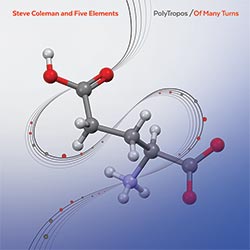




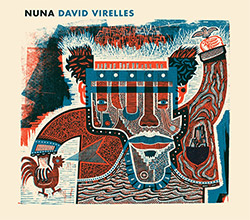

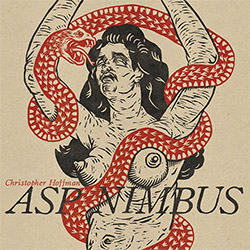


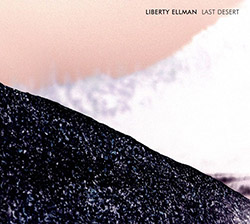
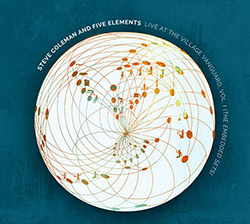


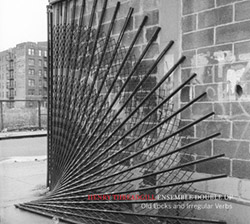

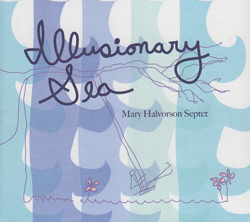
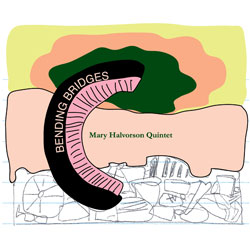
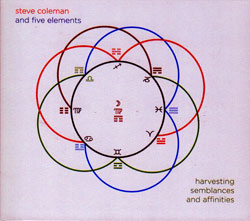
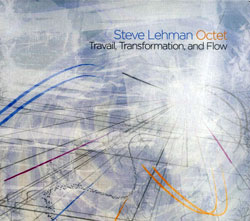
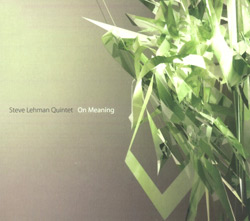

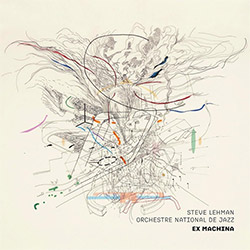
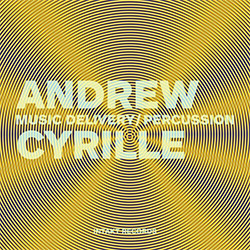





![BlueRing Improvisers: Materia [2 CDs]](https://www.teuthida.com/productImages/misc4/36513.jpg)








![Wheelhouse (Rempis / Adasiewicz / McBride): House And Home [VINYL]](https://www.teuthida.com/productImages/misc4/36462.jpg)
![+DOG+: The Light Of Our Lives [2 CDs]](https://www.teuthida.com/productImages/misc4/36009.jpg)


![Parker, Evan / Jean-Marc Foussat: Insolence [VINYL]](https://www.teuthida.com/productImages/misc4/36398.jpg)










![Deupree, Jerome / Sylvie Courvoisier / Lester St. Louis / Joe Morris: Canyon [2 CDs]](https://www.teuthida.com/productImages/misc4/36404.jpg)



![Eventless Plot | Haarvol: The Subliminal Paths [CASSETTE + DOWNLOAD]](https://www.teuthida.com/productImages/misc4/36232.jpg)










![Eventless Plot | Francesco Covarino: Methexis [CASSETTE + DOWNLOAD]](https://www.teuthida.com/productImages/misc4/36231.jpg)



![Das B (Mazen Kerbaj / Mike Majkowski / Magda Mayas / Tony Buck): Love [VINYL]](https://www.teuthida.com/productImages/misc4/36329.jpg)


![Eternities: Rides Again [CASSETTE]](https://www.teuthida.com/productImages/misc4/36247.jpg)
![Lopez, Francisco: Untitled (2021-2022) [2 CDs]](https://www.teuthida.com/productImages/misc4/36438.jpg)






![Money : Money 2 [2 CDs]](https://www.teuthida.com/productImages/misc4/35894.jpg)




![Klinga, Erik: Elusive Shimmer [VINYL]](https://www.teuthida.com/productImages/misc4/36258.jpg)
![CHANGES TO blind (Phil Zampino): Volume 9 - I Wave on a Fine Vile Mist [CD + DOWNLOAD]](https://www.teuthida.com/productImages/misc4/36061.jpg)

![Wallmart / Rubbish: Asset Protection [split CD]](https://www.teuthida.com/productImages/misc4/35900.jpg)


![+Dog+: The Family Music Book Vol. 5 [2 CDs]](https://www.teuthida.com/productImages/misc4/35897.jpg)
![Kuvveti, Deli : Kuslar Soyledi [CASSETTE w/ DOWNLOAD]](https://www.teuthida.com/productImages/misc4/36107.jpg)

![Brown, Dan / Dan Reynolds: Live At The Grange Hall [unauthorized][CASSETTE]](https://www.teuthida.com/productImages/misc4/36245.jpg)








![Palestine, Charlemagne / Seppe Gebruers: Beyondddddd The Notessssss [VINYL]](https://www.teuthida.com/productImages/misc4/36206.jpg)
![Palestine, Charlemagne / Seppe Gebruers: Beyondddddd The Notessssss [NEON GREEN VINYL]](https://www.teuthida.com/productImages/misc4/36207.jpg)

![Laubrock, Ingrid: Purposing The Air [2 CDs]](https://www.teuthida.com/productImages/misc4/35639.jpg)

![Yoko, Ono / The Great Learning Orchestra: Selected Recordings From Grapefruit [2 CDs]](https://www.teuthida.com/productImages/misc4/35841.jpg)









![Zorn, John / JACK Quartet: The Complete String Quartets [2 CDs]](https://www.teuthida.com/productImages/misc4/35609.jpg)

![Lonsdale, Eden: Dawnings [2 CDs]](https://www.teuthida.com/productImages/misc4/35480.jpg)



![Sorry For Laughing (G. Whitlow / M. Bates / Dave-Id / E. Ka-Spel): Rain Flowers [2 CDS]](https://www.teuthida.com/productImages/misc4/35985.jpg)

![Rolando, Tommaso / Andy Moor : Biscotti [CASSETTE w/ DOWNLOADS]](https://www.teuthida.com/productImages/misc4/36106.jpg)


![Electric Bird Noise / Derek Roddy: 8-10-22 [CD EP]](https://www.teuthida.com/productImages/misc4/35970.jpg)








![Elephant9 : Mythical River [VINYL]](https://www.teuthida.com/productImages/misc4/34624.jpg)



![Elephant9 with Terje Rypdal: Catching Fire [VINYL 2 LPs]](https://www.teuthida.com/productImages/misc4/35355.jpg)
![Deerlady (Obomsawin, Mali / Magdalena Abrego): Greatest Hits [VINYL]](https://www.teuthida.com/productImages/misc4/34876.jpg)







![Surplus 1980: Illusion of Consistency [CD]](https://www.teuthida.com/productImages/misc4/35069.jpg)
![Staiano, Moe: Away Towards the Light [VINYL + DOWNLOAD]](https://www.teuthida.com/productImages/misc4/35037.jpg)
![Coley, Byron: Dating Tips for Touring Bands [VINYL]](https://www.teuthida.com/productImages/misc4/17906.jpg)

![Lost Kisses: My Life is Sad & Funny [DVD]](https://www.teuthida.com/productImages/misc4/lostKissesDVD.jpg)